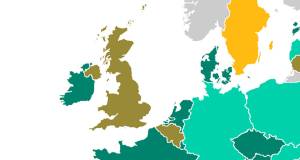
- Blogs
- Posted
Editor's letter: Issue 30
Our editor Jeff Colley's editor's letter from issue 30 received some particularly lovely praise, with architect Steve Mardall reaching out to say: "Was moved to write to commend you on your editor’s letter in this issue 30. You’ve perfectly captured the essence of the totality of where we are as a planet and a race. And captured well that subtle consensus of denial and ‘othering’ it, that is a compelling force to fall in line with if one is not to be labelled as a righteous crank. Your words articulate some of my own not formally articulated thoughts, and offer me clarity and impetus going forward." Meanwhile, AECB Carbon Lite Retrofit graduate Paul Forrester tweeted: "What a tremendously powerful piece of writing your editor’s letter is in issue 30 of @phplusmag. When I struggle to articulate all the thoughts, fears and conflicting ideas in my head, I might just show people that instead!" So here it is.
This article was originally published in issue 30 of Passive House Plus magazine. Want immediate access to all back issues and exclusive extra content? Click here to subscribe for as little as €10, or click here to receive the next issue free of charge
“Things fall apart, the centre cannot hold; mere anarchy is loosed upon the world.” � The words of WB Yeats in the aftermath of World War I have rarely seemed more apposite, or more frequently quoted by commentators vainly hoping that the immortal words will lend their less-than-inspired writings some gravity and heft – rather than throwing their own ordinariness into sharp-relief.
I don’t wish to make the case for anarchy, and like so many people I watch with horror at the rise of nationalism, the polarisation that is eroding the very notion of society such that common ground may not be found, the retreat into romanticised conceptions of a past that never truly existed: a wave of fevered nostalgia for a utopian dream that risks birthing a dystopian nightmare. But often these concerns come from a particular place: a place where the centre does hold, where any changes that do happen are incremental, and resulting from compromise. Politics, by this diktat, is the art of the compromise.
But the natural world doesn’t do compromise. It doesn’t understand our arguments, and it will not reach agreements with us to enable us to change our behaviours at glacial speeds – if that metaphor holds anymore in a rapidly warming world – without disrupting our economies, or causing taxpayers to grumble. The confluence of rapidly emerging, exponentially-growing environmental crises that will come to characterise this moment in history call not for compromise, but for informed radicalism. Evidence-based radicalism, you might say.
I’ve always been deeply uncomfortable with the baggage that such radicalism implies - it allows you to be pigeonholed as part of an earnest, pious, chin-stroking fringe. As abnormal. As eco zealots whose pontificating isn’t relevant to the struggles of the so-called honest, hard-working people that feature so prominently in so much political rhetoric. In part the problem is aesthetic: the notion that by articulating a set of political arguments as a look, a turn-of-phrase, a particular cause, it becomes possible to ‘other’ it. To turn it into an 'ism', a lifestyle choice, a misguidedly narrow ideology that is defined in contrast to the unnamed mainstream view. The danger is that the desire to avoid being pigeon-holed and marginalised – and to win over people of whatever political persuasion – can easily lead to compromise, to moderating the arguments in order to make them more palatable.
But the evidence is becoming increasingly clear: we need utterly radical action in all areas of life - buildings, energy, transport, agriculture, industry, protection of biodiversity, etc. We simply can’t afford to compromise anymore.
I have to process what that means in my life and in my work. But I have the beginnings of an answer, at least in terms of how we make buildings. It means quantifying impacts. We have the tools via evidence-based sustainable building standards such as passive house to solve the space heating and cooling issue, though we need to consider impacts of climate breakdown on how our buildings will perform – with the prospect of future temperature increases on one hand and possibly the impact of the Gulf Stream shutting down on the other. But we have massive ground to make up in quantifying embodied energy and carbon, and in quantifying the multiplicity of environmental pressures our buildings place on an environment that is at breaking point.
We do not have all of the answers: buildings are just one part of the change we need to make, albeit a relatively substantial part. But my colleagues and I hope that our readers find some inspiration and utility in the information contained within these pages, and in our archived back issues and online directory – to help deliver the kind of radically green buildings that the world so badly needs.
Regards,
The editor




